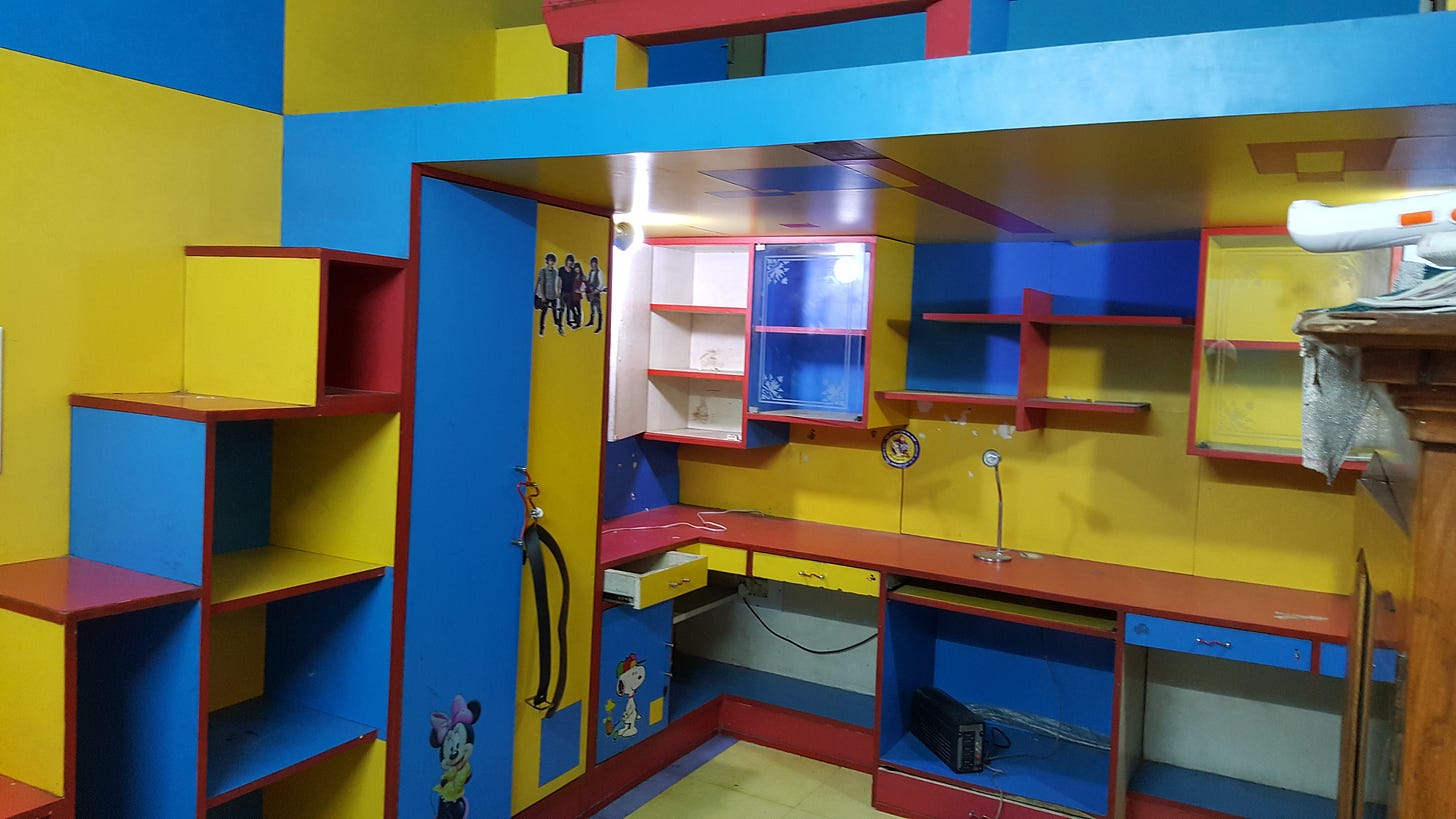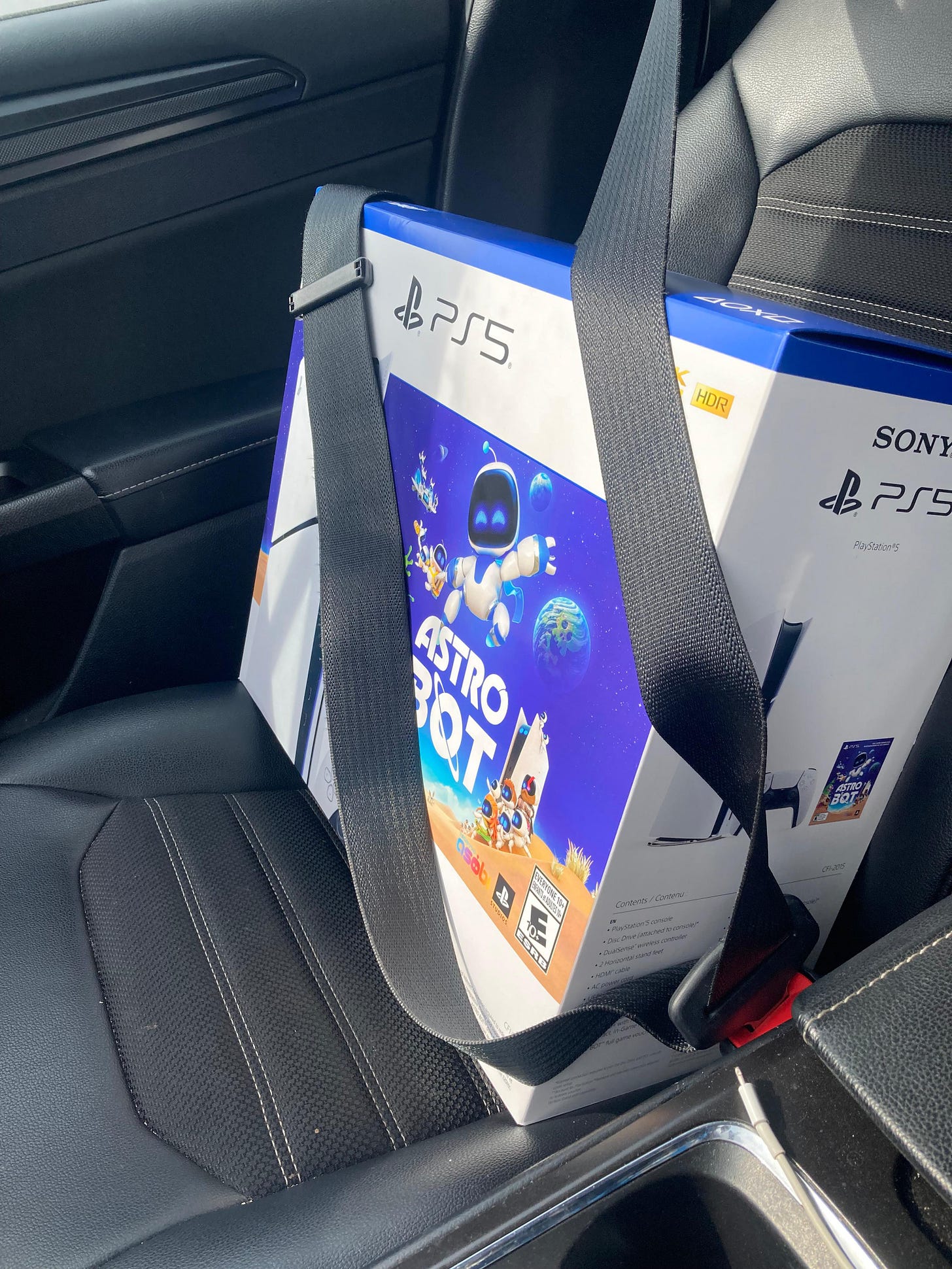How to Stop Endlessly Analyzing Your Own Behavior as If You Were a Scientific Experiment
And maybe prioritize what you should think about?
Every conversation feels like an exam. Every decision, a move in a never-ending game of chess. I analyze what I say, what I do, how I act—as if I’m running an experiment on myself. And yet, somehow, it still feels like I’m losing.
I pick up a jacket and turn it over in my hands. It looks good—casual but put-together. I check the price tag, then put it back. Then I pick it up again. What if it doesn’t fit right? What if I wear it once and regret it? I try it on, staring at myself in the mirror, tilting my head like I’m analyzing a crime scene. Does this make me look like I’m trying too hard? Or not trying enough? I check my phone for a second opinion, but texting someone about a jacket feels ridiculous. Five more minutes pass. I leave the store, then immediately wonder if I should have just bought it. Now I have to decide whether it’s worth walking back.
When Did This Start?
I wasn’t always like this. As a kid, life was simple—I spoke without rehearsing, did things without debating them to death, and didn't question every step.

But at some point, life itself started feeling like a chess game. Every move became calculated, every decision weighted with the fear of making the "wrong" one. Maybe it was moving to a new country, where every interaction carried the weight of first impressions. Or maybe it was losing someone who used to affirm my choices, making even the smallest decisions feel heavier. It’s easier to take risks when someone is in your corner, nodding along, adding to your plans instead of leaving you to map everything out alone. But now, without that safety net, it feels like I’m swimming with the sharks—every move scrutinized, every decision second-guessed, as if one wrong step might send everything spiraling.
The Social Jenga
Every conversation I have feels like a Jenga tower—stacked with small talk, awkward pauses, and the occasional risky joke. One wrong move, and the whole thing comes crashing down. At this point, my conversation skills are so waterlogged that I’ve defaulted to just nodding and saying “yeah, for sure” to things I don’t understand—or worse, things I don’t even agree with. I’ve RSVP’d to plans I had no interest in, just because the effort of arguing felt like trying to push a boulder uphill in flip-flops.
There was a moment—not loud, not dramatic, just a quiet unraveling. A conversation that turned into something it wasn’t supposed to be. A small crack in something I thought was solid. I had convinced myself I was being thoughtful, making space for everyone, considering every angle. But when it fell apart, I was left with a truth I didn’t want to face: I think about people far more than they think about me.
And that hurt in a way I didn’t expect—not because I wanted anything in return, but because I had been holding something together that no one else even realized was breaking.
Convincing people is exhausting, but if I keep playing social Jenga like this—saying “yes” just to avoid tipping the tower—I’ll eventually be buried under the wreckage of my own passivity.
The Scientific Experiment of Self
I keep treating my behavior like a never-ending science experiment—forming hypotheses about how people see me, testing different reactions like I’m running social A/B tests, and constantly trying to optimize my personality for the best possible outcome. But the problem is, real experiments require controlled environments, measurable variables, and repeatability.
Life, on the other hand, is the messiest lab ever—no fixed conditions, no predictable outcomes, and definitely no safety goggles to protect me from emotional shrapnel. Science has the luxury of running trials under controlled settings, but I don’t get a do-over when I say something weird in a conversation. Every person, every moment, and every day introduces a new set of unknowns, making my so-called experiment look less like a well-structured study and more like a chaotic high school science fair project—one where the volcano might actually explode in my face.
But I Also Don’t Think About Certain Stuff…
Some decisions in my life demand serious thought—but for some reason, my brain clocks out exactly when it’s needed the most. I absolutely want to think three times before spending money, but I don’t. It’s like my built-in three-factor authentication malfunctions whenever I see something remotely interesting.
Last month, I had a moment of clarity (rare, but it happens) and realized I somehow owned four gaming consoles—meanwhile, the one I actually played the most, my Xbox, had long left my life. Did I need four? Absolutely not. Did that stop me? Also absolutely not. I also own a vinyl record player and 15 records, even though the last time I used it was 2022.

I’m weirdly frugal when it comes to things that actually matter—like clothes—but show me something slightly unusual or borderline useless, and my wallet practically leaps out of my pocket. I haunt thrift stores like a ghost with unfinished business, chasing the dopamine rush of finding the perfect antique item that I will 100% convince myself I need. Will I use it? Maybe once. Will I regret buying it? Also maybe once. I wish I could over-analyze money the same way I overthink social interactions, but apparently, my brain only enjoys analysis when it’s making my life harder.
The Illusion of Control
I over-analyze because I believe that if I can control every aspect of my life—how I speak, how I act, how I present myself—I can control how people perceive me. But no matter how much I tweak, rehearse, or edit myself, I will never be able to control what people think.
People will judge regardless—some will misinterpret my words, others will form opinions based on half a second of interaction, and a few will probably decide they don’t like me purely based on my choice of shoes (which is ridiculous because, honestly, my shoe game is solid).
The irony is people who seem effortlessly cool aren’t running mental simulations of every social scenario—they just exist, and the world adjusts. Maybe I need to take a page from their book and accept that I’ll never have full control. Instead of worrying about every outcome, maybe I just need to chill and let life happen. Worst case? Someone out there still won’t like my shoes.
Breaking Free: Living Without the Experiment
I over-analyze because I believe that if I can control every aspect of my life—how I speak, how I act, how I present myself—I can control how people perceive me. But no matter how much I tweak, rehearse, or edit myself, I will never be able to control what people think.
People will judge regardless—some will misinterpret my words, others will form opinions based on half a second of interaction, and a few will probably decide they don’t like me purely based on my choice of shoes (which is ridiculous because, honestly, my shoe game is solid).
The irony is, people who seem effortlessly cool aren’t running mental simulations of every social scenario—they just exist, and the world adjusts. Maybe I need to take a page from their book and accept that I’ll never have full control. Instead of worrying about every outcome, maybe I just need to chill and let life happen. Worst case? Someone out there still won’t like my shoes.
So What Do We Do?
The key isn’t to stop thinking—it’s to stop overthinking. I won’t always say the right thing. I won’t always make the best choices. But maybe that’s okay. Maybe life isn’t about winning or losing—it’s about playing without being afraid of the next move.
So tell me, when was the last time you caught yourself overthinking? And was it even worth it?


Also what kind of experiment was repeating the same paragraph twice, with different headings?😂
OG 🙌🙌